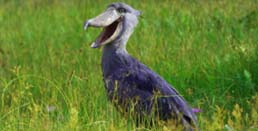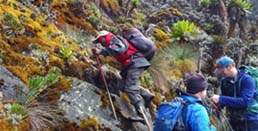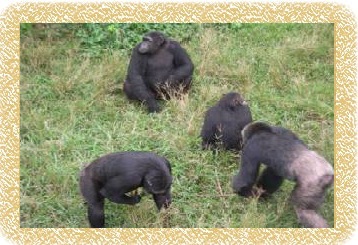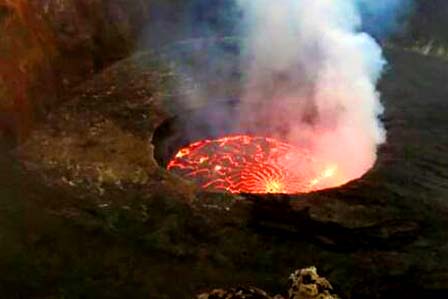Email: info@wildlifesafarisuganda.com
Mob: +256 782 118 037 (WhatsApp)
Tel: +256 200 905 266



About Uganda
History
Uganda experienced two great waves of migration. The first brought the Bantu-speaking peoples from further west in Africa, and the second, the Nilotic people from Sudan and Ethiopia. These broad families are still geographically split today, the Bantu in the centre and south of the country and the Nilotic peoples in the north. Until the 19th century, landlocked Uganda saw few outsiders compared with its neighbours. Despite fertile lands and surplus harvests, trading links with the great Indian Ocean ports were limited. During the reign of the Buganda Kabaka(king) Mwanga in the mid-19th century, contacts were finally made with Arab traders and early European explorers. Uganda was not to escape the tide of colonialism sweeping across the continent.
Uganda is Africa condensed, with the best of everything the continent has to offer packed into one small but stunning destination. Uganda is home to the highest mountain range in Africa, the Mountains of the Moon in the Rwenzori National Park. It is the source of the mighty Nile and around Jinja offers the best white-water rafting in the world. It has the highest concentration of primates on earth, including the few remaining endangered famous mountain gorilla, one of the rarest animals on the planet. Visit to Bwindi Impenetrable National Park for a chance to get close to these great apes.
The scenery is so striking that it looks like an oil painting, the beautiful national parks with unique wildlife and birdlife species see far fewer visitors than in neighbouring Kenya and Tanzania, and the capital, Kampala, is safer and friendlier than most in Africa. In 1907 the great tourist Winston Churchill baptized Uganda the “Pearl of Africa”.
Geography and Climate.
Uganda is 236,040 sq km in size, smaller than Kenya, but bigger than Rwanda and Burundi combined. Uganda is a landlocked country. The terrain is mostly plateau with a rim of mountains. With its highest point Margherita Peak on Mount Stanley which stands at 5,110 m at Mt Rwenzori National Park. Uganda’s lowest point is Lake Albert at 621 m. The climate is tropical; generally rainy with two dry seasons-December-February, June-August. The northeast of Uganda is semi-arid and therefore drier. The country is generally very fertile with many lakes and rivers.
Passport and Visa.
For any visitor to enter Uganda, a passport valid for at least six months from date of entry is required by all nationals. Entry may be refused to passengers not holding sufficient funds, return or onward tickets, and other necessary travel documents.
Visa requirements.
Requirements for Uganda visas and entry into Uganda differ from country to country, are subject to change, and each Uganda visa application is treated as an individual case. Always make visa inquiries before travelling to Uganda.
A Uganda visa is a clearance permitting an individual to proceed to visit Uganda. Uganda visas are issued at Missions/Embassies abroad and also at the entry and exit points of Uganda like Entebbe airport, Busia border, Malaba border.
In 1999 Uganda introduced visa requirements for all visitors and people entering Uganda except nationals of a few countries. There are different types of visas needed depending on what you are going to do in Uganda: Student Visas, Single Entry visas, Multiple Entry 6 month’s visas, Multiple Entry 1 year visas, or Inland Transit visas.
If you arrive or enter Uganda without a valid travel visa, you may be fined and immediately deported at your own expense. You must obtain a Uganda Government VISA before entry into Uganda. To obtain a Uganda Government VISA the following are required:-
Fill out both sides of Visa Application Form “J”. Submit your passport and two (2) passport-size photographs.
A passport issued by your government valid for at least six months. Your passport must also be valid past the date of your expected departure from Uganda. (Passport must be signed.)
One completed Uganda visa application form, Two passport-size photo taken within the past six months, International Certificate of Vaccination for Yellow Fever and Letter from applicant’s company if travelling for business (on company letterhead and signed by someone other than the applicant).
Health
Uganda is generally a safe country. One is required to have a certificate of yellow fever vaccination. All visitors to Uganda should take anti-malaria drugs as a precaution against this prevalent disease. It is also advisable to drink bottled water which are readily available in any of the many supermarkets, restaurants and shops rather than tap water. The AIDS scourge which afflicted the nation has dramatically dropped due to a strong AIDS sensitization campaign by the government and NGOs but one is advised to take precaution.
Economy and Currency
After the discovery of Oil in Uganda, we hope its economy to shoot up in the near future.
Uganda has substantial natural resources, including tourism resources, fertile soils, regular rainfall, and sizable mineral deposits of copper and cobalt. Agriculture is the major sector of the economy, employing over 80% of the work force.
The unit of currency is the Uganda shilling. Most tour operators prefer that tourist pay in US dollars, but Euros and Pound Sterling are also widely accepted. Hard currency cash can be changed for the local currency at any of the banks and forex bureaus in all the towns within Uganda, although one will find difficulty using travelers’ cheques outside of Kampala. You can draw the Ugandan Shilling against Visa and other major credit cards at selected bank ATMs in Kampala, Entebbe International Airport, as well as in other larger towns outside of the Capital.
Culture and Language
Uganda is a country rich in cultural heritage since people from various origins inhabit the place from time immemorial. Many of the regions like Buganda, Bunyoro and Toro had kingdoms. The people are quite hospitable. Each of the tribe is very respectful to their tradition. Uganda culture is a melting pot of diverse cultural practices.
Uganda Culture includes a number of religious groups like Christians, Sikhs; Hindus etc. people speak in 40 languages out of which Luganda is the most common one. Swahili is also used. English is the official language. Literature of Uganda is very rich as well. Culture in Uganda is farther enriched by various sports like football and cricket.
Uganda Music is an integrated part of the Culture of Uganda. Each of the tribe has their own song and dances for most of the occasions. Kitaguriro is a form of dance of the banyankole, while the banyoro perform Runyege dance, Acholi also has traditional dances such as Bwila and Otole, Agwal is the traditional dance of the Alur people and the Bagisu people have their Imbalu dance during the circumcision ceremonies. The commonly played instruments are Ennaga, Amadinda, Ndigindi, Entongoli and Likeme.
English is the official language in Uganda and most Ugandans are generally fluent when it comes to speaking English. Although the country has over 36 different tribes who speak different dialects, Luganda serves as something of a lingua franca. We also have a number of people who speak French due to the strong influence from Congo and Rwanda, not to mention the influence of Alliance Francias, a French language teaching school in the city.









 Hotels or Lodges in Uganda
Hotels or Lodges in Uganda






